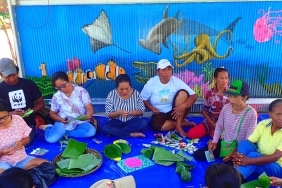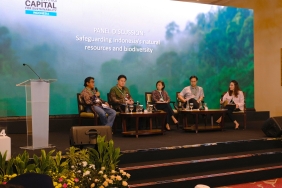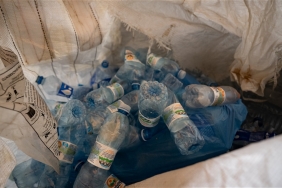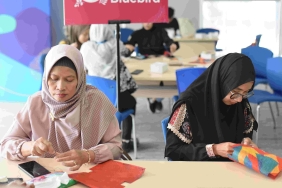WWF ENCOURAGES YOUNG PEOPLE OF YOGYAKARTA AND BALI TO RECOGNIZE ENVIRONMENTALLY FRIENDLY PRODUCTS
In May and June 2024, WWF-Indonesia organized a public campaign entitled "Let's Get to Know Environmentally Friendly Products" in two cities rich in cultural heritage and natural charm: Yogyakarta and Bali. The event aims to raise the awareness of millennials and Gen Z on the importance of using sustainable palm oil-based products in daily life.
Yogyakarta: Synergy CO-Working Space

In Yogyakarta, the event took place on May 18, 2024 at Sinergi CO-Working Space. The city was chosen not only for its beauty and rich culture, but also for its potential as a growing creative economy center, in addition to being one of the top tourist destinations in Indonesia, besides Bali and Bandung. The young generation in Yogyakarta is known for their creativity and passion to get involved in social movements, making it an ideal place to hold this campaign.
Angga Putra from WWF-Indonesia's Climate & Market Transformation Directorate explained in his speech that the unsustainable use of palm oil brings adverse environmental and social impacts. "Irresponsible production often involves excessive use of chemical fertilizers and practices that discriminate against local or indigenous communities," he said. "By choosing labeled products, we are supporting the recognition of the rights of indigenous and local communities and ensuring a positive impact on the environment."
In the event, Bukhi Prima Putri, owner of Bhumi Bhuvana Jogja and local environmental activist, shared her experience about living a sustainable lifestyle. She inspired many participants by sharing her story abouther efforts inutilizing natural ingredients and doing environmentally friendly practices
in running her
operations.
In addition, Mahatma Windrawan Inantha of the Roundtable on Sustainable Palm Oil (RSPO)Indonesia emphasized the importance of sustainability as a competitive advantage for Yogyakarta's tourism. "Business players in the tourism sector, especially hotels and restaurants, have a big responsibility because the sectoruse a lot of palm oil-based products," he said. "By prioritizing the sustainability aspect, we are not only preserving the environment but also increasing our tourism attractiveness."
.
Bali: BWork Co Working Space Canggu
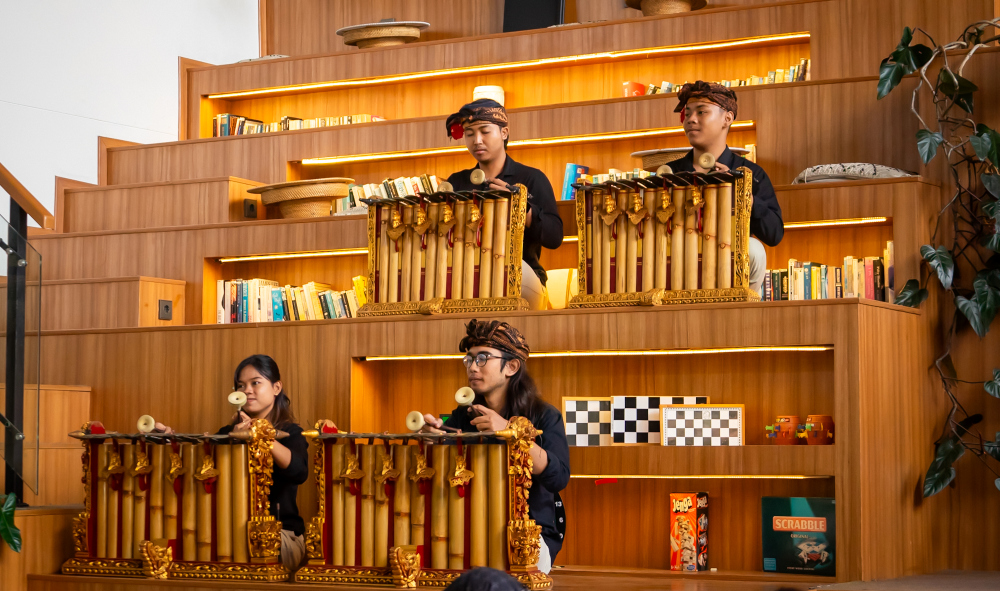
A few weeks later, on June 22, 2024, a similar campaign was conducted at Work Co Working Space in Canggu, Bali. The city of Bali, beingone of the top tourist destinations in Indonesia, has a great influence in driving sustainability practices in the tourism industry. Bali's young generation who are dynamic and open to change are ideal targets for this campaign.
Griya Luhu, a youth movement in Bali that focuses on waste management and environmental awareness became one of the key speakers. They showed how waste can be turned into something useful and how people can be more aware of waste management. "We invite everyone to not only be consumers but also part of the environmental solution," said a representative of GriyaLuhu.
.
The event was also attended by representatives of the National Industry and Trade (Diseprindag)Bali who highlighted how sustainability can be an added value in Bali's tourism competitiveness. They appreciated the efforts of tourism businesses that are starting to switch to environmentally friendly products, including RSPO-certified palm oil used in products such as cooking oil, margarine and cosmetics.
Fina, a student from Udayana University who attended the event, expressed her amazement. "I just found out that by choosing RSPO-labeled products, we can help save orangutans and tigers in Sumatra," she said. "We can't completely avoid palm oil-based products, but we can choose to buy responsible products."
The "Get to Know Eco-Friendly Products" event not only introduces the importance of sustainable products but also triggers a new awareness among the younger generation about the positive impact they can make through their daily choices. WWF hopes that this campaign will be the start of a bigger and stronger movement towards a greener and more sustainable future for Indonesia.
With these steps, Yogyakarta and Bali are not only becoming tourism hubs but also pioneers in the adoption of sustainable practices, which will hopefully inspire other regions in Indonesia to follow in their footsteps.

